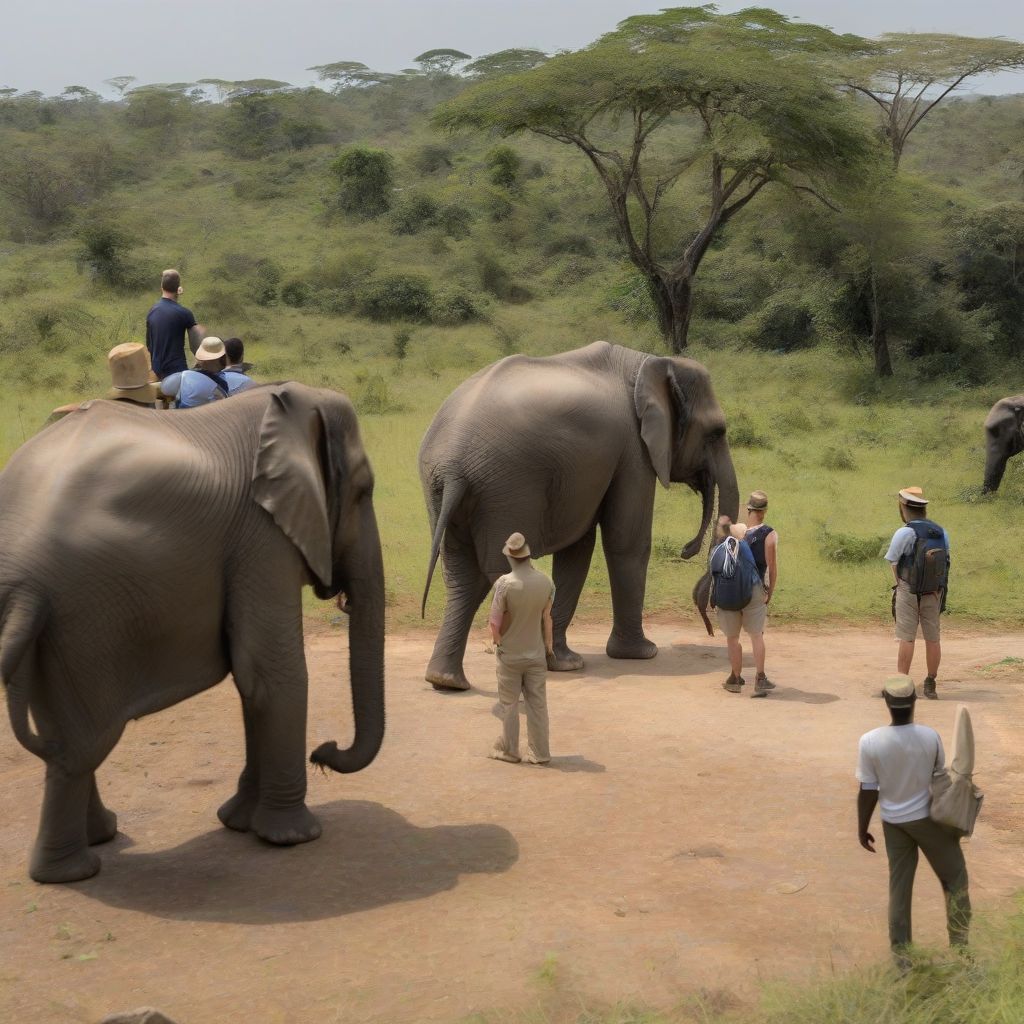Imagine this: you’re trekking through a lush rainforest, the air thick with the scent of pine and damp earth. Sunlight filters through the canopy, illuminating brightly colored birds flitting amongst the trees. Suddenly, you come face-to-face with a family of gorillas, their quiet power leaving you breathless. This is the magic of wildlife tourism, an experience that stays with you long after you’ve returned home. But what about the future of these incredible creatures and the places they call home?
As awareness of environmental issues grows, so too does the understanding that travel can impact the very wildlife we journey to see. The future of wildlife conservation hinges on a crucial partnership: the travel industry and conscious travelers like you. It’s a future where seeing the world and saving it go hand in hand.
The Shifting Sands: From Exploitation to Conservation
For decades, the relationship between travel and wildlife has been fraught with exploitation. Animals were captured for entertainment, habitats destroyed for resorts, and irresponsible interactions became the norm. However, a heartening shift is occurring. Travelers are becoming more discerning, demanding ethical, sustainable practices. The industry is responding, realizing that protecting wildlife is not just ethical but makes sound economic sense.
Sustainable Travel: The Cornerstone of Conservation
 Sustainable Travel Protecting Wildlife
Sustainable Travel Protecting Wildlife
Sustainable travel is the bedrock upon which the future of wildlife conservation is being built. But what does it actually look like in practice?
- Empowering Local Communities: Sustainable tourism empowers local communities, providing them with the resources and incentives to protect their natural heritage. By choosing locally owned lodges, eco-friendly tour operators, and participating in community-based initiatives, travelers directly contribute to conservation efforts on the ground.
- Minimizing Environmental Impact: From carbon offsets for flights to energy-efficient accommodations and waste reduction programs, the travel industry is actively minimizing its environmental footprint. Choosing eco-certified hotels and tour operators ensures your trip aligns with sustainable practices.
- Promoting Responsible Wildlife Tourism: Observing animals in their natural habitat is a privilege, and ethical wildlife tourism emphasizes respectful interactions. This means keeping a safe distance, avoiding flash photography, and supporting tour operators who prioritize the well-being of animals over close encounters.
The Power of Your Choices: How You Can Make a Difference
You, the traveler, hold immense power to shape the future of wildlife conservation. Here’s how:
- Do Your Research: Before booking, delve deep into the practices of tour operators, hotels, and destinations. Look for certifications like GSTC (Global Sustainable Tourism Council) and support businesses actively engaged in conservation efforts.
- Pack Your Values: Embrace sustainable practices while traveling. Pack reusable water bottles, say no to single-use plastics, and be mindful of your water and energy consumption. Every little step counts!
- Support Ethical Wildlife Experiences: Opt for wildlife encounters that prioritize observation over interaction. Choose sanctuaries and rehabilitation centers over those that exploit animals for entertainment.
- Amplify the Message: Share your experiences! Spread the word about responsible tourism operators and encourage others to travel with a conscience.
The Future is Collaborative: A Shared Vision for Conservation
The future of wildlife conservation is not a solitary endeavor; it requires a global village working in unison. The travel industry, governments, conservation organizations, and travelers must collaborate to protect our planet’s precious biodiversity.
Imagine a future where travelers witness thriving wildlife populations, where local communities reap the benefits of sustainable tourism, and where the impact of travel leaves a legacy of positive change. This is the future we can create together. By making conscious choices and supporting ethical tourism, we can ensure that the magic of encountering wildlife in their natural habitat continues to inspire generations to come.
[amazon bestseller=”Wildlife Conservation”]
Conclusion: Journeying Towards a Brighter Future
The future of wildlife conservation is inextricably linked to the travel industry. By embracing sustainable practices, supporting ethical wildlife tourism, and making conscious choices, we can shift from a model of exploitation to one of conservation. The journey towards a brighter future for wildlife starts with each and every one of us. Let’s travel with purpose, tread lightly, and leave a legacy of positive change for generations to come.
